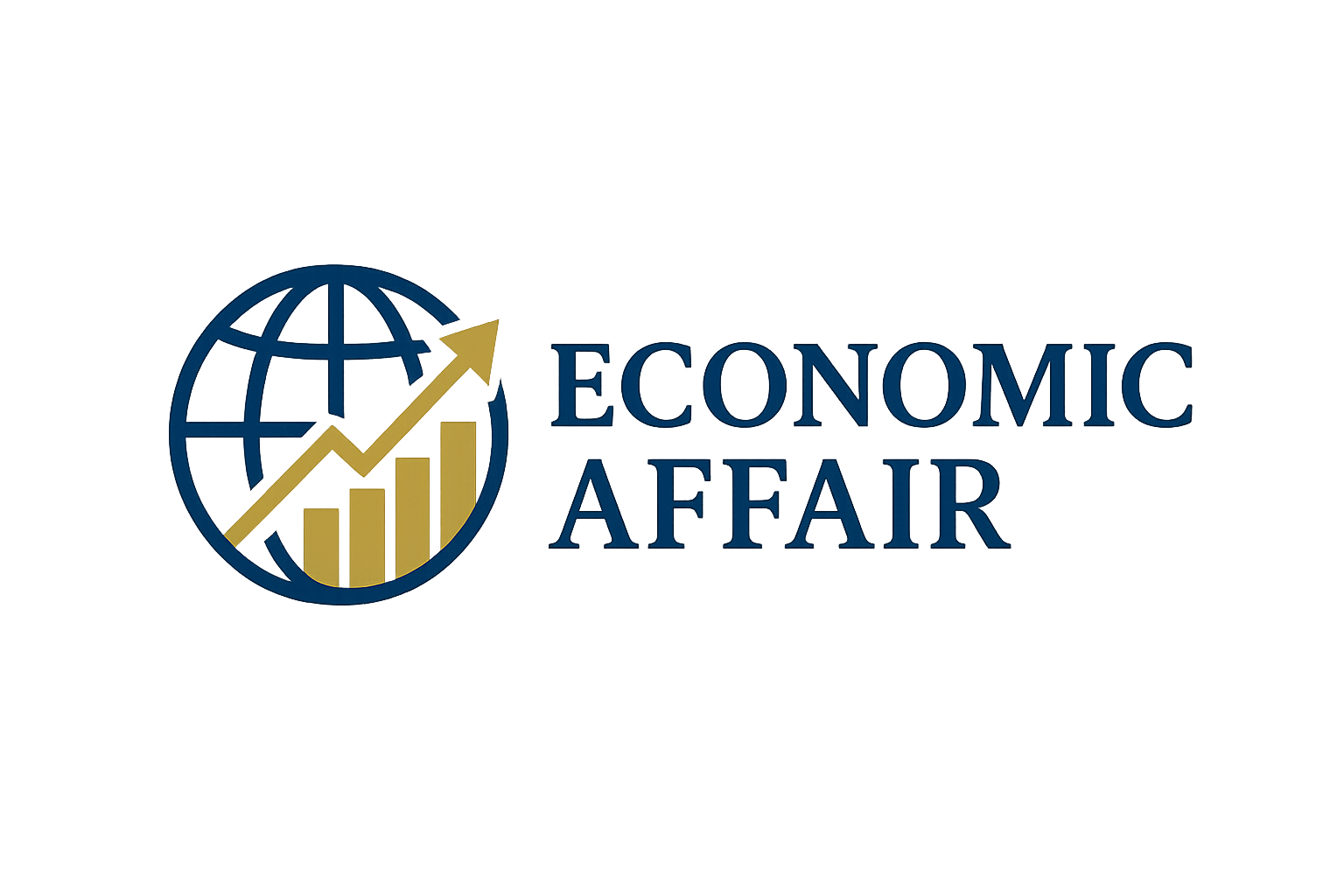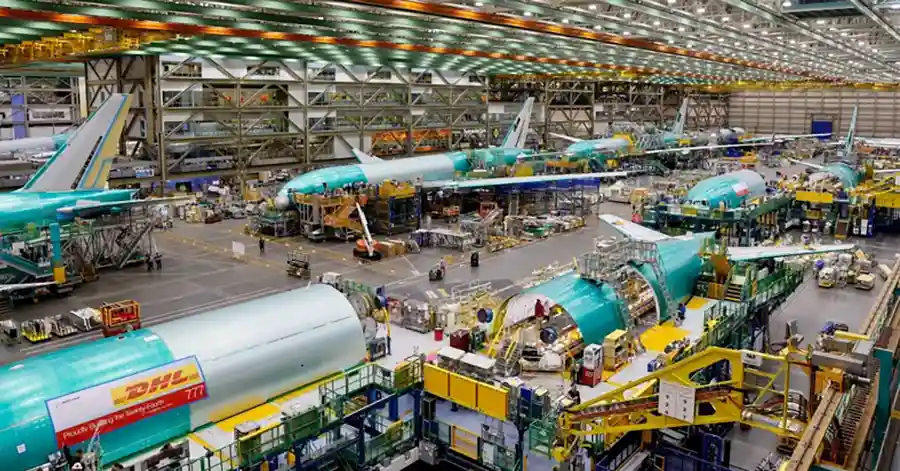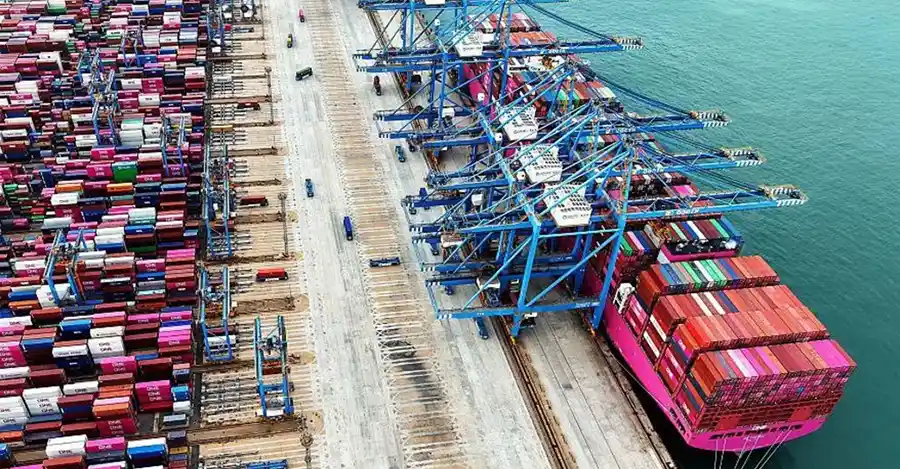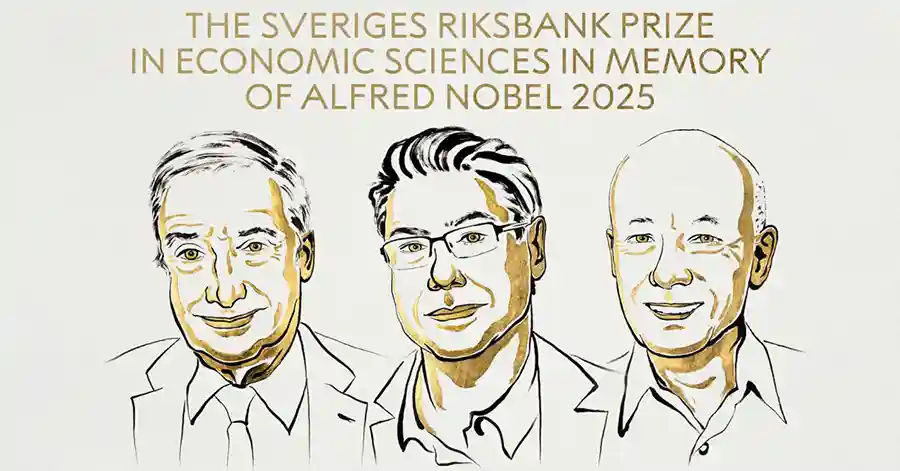Nobel Prize in Economics 2025 Goes to Three Revolutionary Economists for Innovation Research. The Royal Swedish Academy of Sciences announced on Monday, October 13, 2025, that three distinguished economists have been awarded the prestigious Nobel Prize in Economic Sciences for their transformative work explaining how innovation drives sustained economic growth. Joel Mokyr from Northwestern University (USA), Philippe Aghion from the London School of Economics (UK), and Peter Howitt from Brown University (USA) will share the honor and the accompanying prize money for fundamentally changing how we understand technological progress and prosperity.
This year’s Nobel Prize in Economics recognizes decades of groundbreaking research that has reshaped economic theory and provided crucial insights into why some nations thrive while others stagnate. The laureates’ work addresses one of the most fundamental questions in economics: what drives long-term economic growth and prosperity?
Understanding the Prize: Who Are the Winners?
The 2025 Nobel Prize in Economic Sciences honors three brilliant minds whose complementary research has illuminated the critical role of innovation in creating sustainable economic growth.
Joel Mokyr: The Historian of Technological Progress
Professor Joel Mokyr from Northwestern University will receive half of the prize for his pioneering work identifying the preconditions for sustainable economic growth through technological advancement. Mokyr, an economic historian, has spent his career examining how societies create environments that foster innovation and technological change.
His research explores why the Industrial Revolution happened when and where it did, what cultural and institutional factors promote technological progress, and how knowledge accumulation drives economic transformation. Mokyr’s work demonstrates that economic growth isn’t simply about accumulating capital or labor but fundamentally about creating systems that encourage innovation and the practical application of knowledge.
Philippe Aghion: The Growth Theorist
Professor Philippe Aghion, associated with the London School of Economics and Collège de France, will share the remaining half of the prize with Peter Howitt. Aghion has made extraordinary contributions to our understanding of how innovation creates what economists call “creative destruction” – the process where new technologies and business models replace outdated ones, driving economic progress.
His research has shown how government policies, competition, and institutional frameworks can either accelerate or hinder innovation-driven growth. Aghion’s work provides practical insights for policymakers seeking to create environments where entrepreneurship and technological advancement flourish.
Peter Howitt: The Macroeconomic Innovator
Professor Peter Howitt from Brown University shares the second half of the prize with Aghion for their joint development of theories explaining sustainable economic growth through creative destruction. Howitt’s contributions to macroeconomic theory have helped economists understand how innovation spreads through economies and affects employment, wages, and living standards.
Together, Aghion and Howitt created models that explain how economies can grow indefinitely through continuous innovation, challenging earlier theories that predicted growth would eventually stall. Their framework helps explain why some countries successfully transition to knowledge-based economies while others remain trapped in traditional production methods.
What Is Innovation-Driven Economic Growth?
The concept of innovation-driven economic growth represents a fundamental shift in economic thinking. Traditional economic models focused primarily on accumulating physical capital (factories, machines) and human capital (educated workers) as the main drivers of prosperity.
The laureates’ research demonstrates that sustained economic growth fundamentally depends on innovation – the creation of new technologies, products, processes, and business models that increase productivity and create value. This innovation doesn’t happen randomly but requires specific conditions, institutions, and incentives.
Their work shows that economies grow not simply by doing more of the same things but by constantly finding better ways to produce goods and services, creating entirely new products, and improving how society organizes economic activity.
The Theory of Creative Destruction Explained
Central to Aghion and Howitt’s contribution is their development of rigorous economic models based on “creative destruction,” a concept originally proposed by economist Joseph Schumpeter. Creative destruction describes how innovation simultaneously creates new opportunities while making existing technologies, products, and companies obsolete.
Consider how smartphones destroyed the market for standalone cameras, GPS devices, and music players while creating massive new industries around apps, mobile computing, and digital services. This pattern – where innovation simultaneously creates and destroys – drives economic progress but also creates challenges for workers and businesses in declining sectors.
The laureates’ models help explain:
- Why innovation clusters in certain times and places
- How competition affects the rate of innovation
- Why some disruptions lead to growth while others create instability
- What policies can encourage beneficial innovation
Mokyr’s Historical Insights: Why Culture Matters
Joel Mokyr’s historical research reveals that technological progress requires more than just clever inventors. His work identifies crucial cultural and institutional preconditions for sustained innovation:
The Enlightenment Connection: Mokyr demonstrates how the intellectual culture of the European Enlightenment created conditions favorable to technological progress by promoting rational inquiry, practical knowledge application, and open communication among innovators.
Institutions That Support Innovation: His research shows that property rights, patent systems, competitive markets, and educational institutions all play crucial roles in determining whether societies successfully harness technological possibilities.
The Role of Useful Knowledge: Mokyr emphasizes that economic growth depends not just on scientific discoveries but on “useful knowledge” – practical understanding that can be applied to solve real-world problems and improve production methods.
These insights help explain why technological revolutions occur in some societies and not others, even when the underlying scientific knowledge exists everywhere.
Practical Implications for Policy and Society
The laureates’ research provides valuable guidance for governments, businesses, and institutions seeking to promote economic prosperity:
For Policymakers: The research suggests that fostering innovation requires investments in education, research infrastructure, intellectual property protection, and competitive markets. Simply protecting existing industries from change often hinders rather than helps long-term prosperity.
For Businesses: Understanding creative destruction helps companies recognize when they need to disrupt themselves rather than protect existing business models. The most successful firms continuously innovate even when current products remain profitable.
For Workers and Communities: The research acknowledges that innovation creates winners and losers in the short term, suggesting the need for policies that help workers transition from declining to growing sectors while maintaining social stability.
Previous Nobel Prizes in Economic Growth
The 2025 prize continues a tradition of recognizing economists who explain the sources of prosperity. Last year’s Nobel Prize went to Daron Acemoglu, Simon Johnson, and James A. Robinson for studying how institutions affect economic development.
Other growth-related Nobel Prizes include:
- Paul Romer and William Nordhaus (2018) for work on technological change and climate in economic growth
- Robert Solow (1987) for contributions to the theory of economic growth
- Simon Kuznets (1971) for empirically founded interpretation of economic growth
The 2025 prize represents the latest chapter in economics’ ongoing effort to understand what makes societies prosperous.
The Prize Ceremony and Recognition
The formal Nobel Prize ceremony will take place on December 10, 2025, in Stockholm, Sweden – the anniversary of Alfred Nobel’s death in 1896. The laureates will receive their medals, diplomas, and share the prize money during an elaborate ceremony attended by Swedish royalty and international dignitaries.
The Sveriges Riksbank Prize in Economic Sciences in Memory of Alfred Nobel, while not one of the original prizes established by Alfred Nobel’s will, has been awarded since 1969 and carries the same prestige as the original Nobel Prizes.
Why This Research Matters Now
In an era of rapid technological change – from artificial intelligence and biotechnology to renewable energy and quantum computing – understanding how innovation drives economic growth has never been more relevant.
The laureates’ work helps societies navigate the challenges and opportunities of technological transformation. Their insights inform debates about:
- How to manage the transition to AI-driven economies
- Whether governments should actively promote specific technologies
- How to balance innovation’s benefits with its disruptive effects on workers
- What developing countries should do to catch up with technological leaders
For more news on international achievements and global economics, visit Singha Darbar for comprehensive coverage of significant developments worldwide.
Global Recognition and Academic Impact
The three laureates have collectively published hundreds of influential academic papers, mentored generations of economists, and shaped economic policy discussions worldwide. Their research is cited thousands of times annually and forms the foundation for contemporary understanding of technological change and economic growth.
Universities, research institutions, and policy organizations around the world congratulated the winners, with many noting that their contributions have profoundly influenced how economists think about development, innovation policy, and the sources of prosperity.
Looking Forward: Continued Relevance
As the global economy faces challenges ranging from climate change to demographic shifts to technological disruption, the laureates’ insights into innovation-driven growth will remain crucial. Their work provides frameworks for understanding how societies can prosper through continuous innovation while managing the inevitable disruptions that accompany progress.
The 2025 Nobel Prize in Economics celebrates not just past achievements but ongoing contributions to our understanding of what drives human prosperity in an ever-changing world.



















Comments